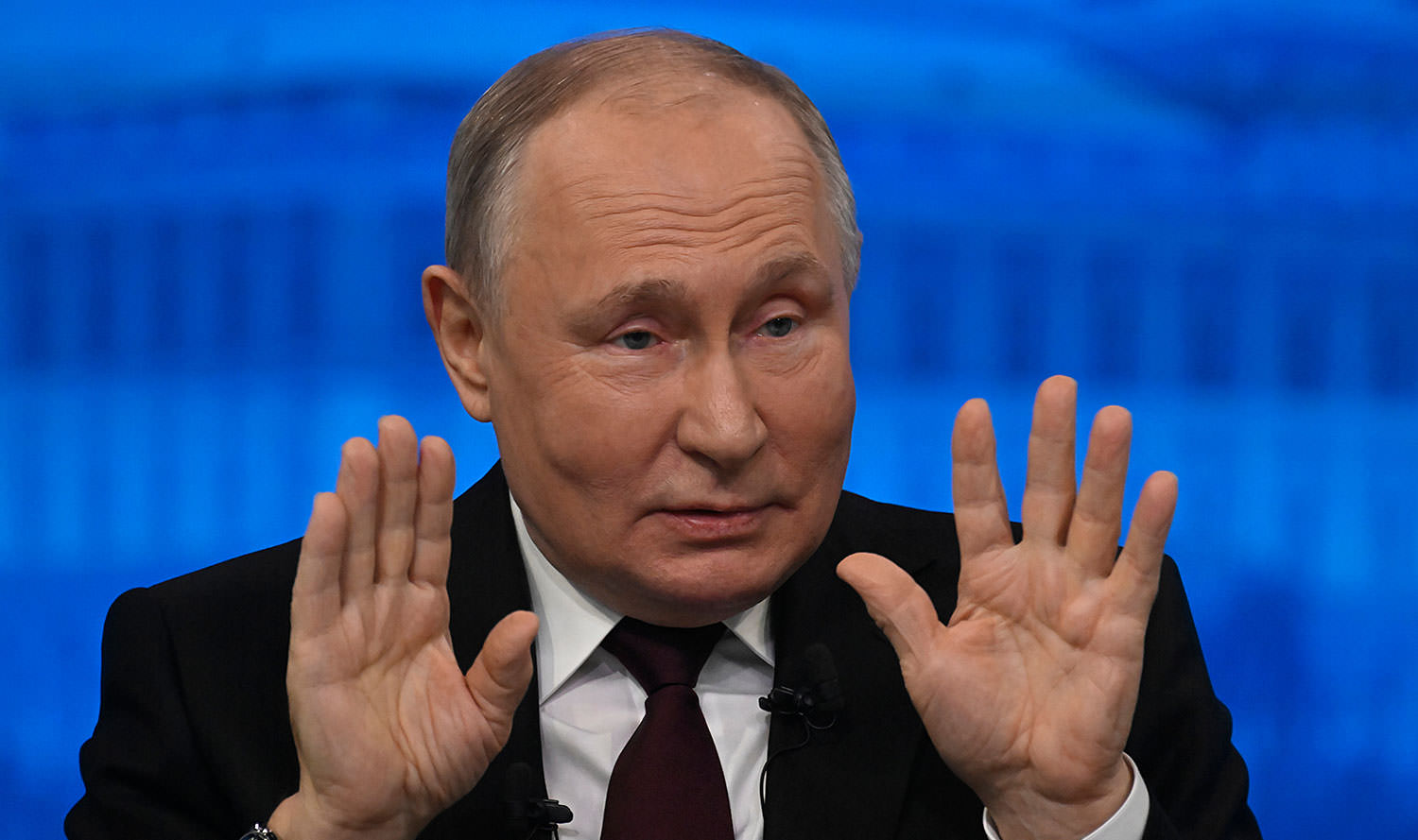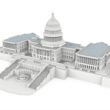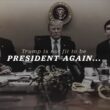A pair of books released weeks before the election, written by key players in the post-2016 investigation of Donald Trump’s multiple ties to Russia, brings our attention back to something that Republicans say is a hoax and Democrats seem all too ready to forget: that Russia’s President Vladimir Putin apparently has leverage over the Manhattan billionaire and felon.
The books are Interference: The Inside Story of Trump, Russia, and the Mueller Investigation, by Aaron Zebley, James Quarles, and Andrew Goldstein, a trio of attorneys who served as deputies to Robert Mueller in the 2017-2019 special counsel’s office, and Unredacted: Russia, Trump, and the Fight for Democracy, by Christopher Steele, the veteran intelligence expert on Russia for the British secret service, who founded Orbis Business Intelligence in London and was the principal author of the (in)famous “Steele Dossier.”
The two books couldn’t be timelier. They come amid new revelations that once again Russia was covertly seeking to support Trump’s reelection. In one egregious case, the office of the U.S. director of national intelligence announced this past October that a widely circulated fake video purporting to accuse Tim Walz, Kamala Harris’ running mate, with sexual abuse, was the work of Russian agents. Worse, U.S. intelligence officials “highlighted Russia’s intentions to encourage protests and violence, especially if former President Donald J. Trump loses to Vice President Kamala Harris,” according to the New York Times, even as Russia’s state-controlled media ran nonstop flattering accounts of Trump’s campaign.
And, of course, we know from War, the new book by Bob Woodward of the Washington Post, that since leaving office in 2021 Trump has spoken by phone with Putin at least seven times.
Interference, by Zebley et al.—with an introduction by Mueller himself—is a lawyerly, step-by-step account of the investigation that began quietly in 2016 by the FBI and then exploded into Mueller’s sprawling inquiry after Trump tried to quash the whole thing by firing FBI Director James Comey in May 2017. In its main section, which reads like an NBC Law and Order procedural, the authors revisit the mountains of evidence they accumulated showing that a dizzying array of Trump associates, staff, and hangers-on, not least his family and Trump himself, had countless contacts with Russian spooks, businessmen, bankers and government officials before, during, and after the 2016 campaign—and documenting ten separate instances in which President Trump sought to obstruct their investigation.
The book goes into great detail about the obstacles the Mueller team faced in trying to get to the bottom of the Trump-Russia story, including the fact that many of the people they were questioning—such as Roger Stone, Paul Manafort, Gen. Michael Flynn, and George Papadopoulos—refused to cooperate or provided only very limited cooperation, and eventually were pardoned by Trump. And, hanging over Mueller’s whole enterprise were the continual threats by the president to fire the whole team.
Still, after reading Interference, it’s hard not to come to the conclusion that the Mueller team, or most of it, was far too cautious and timid in pursuing their quarry. For example, the authors go into painstaking detail to explain (and to justify) their ultimate decision not to issue a subpoena to Trump. Having early on “concluded that the issuance of a subpoena is justified,” as they wrote to their overseers at the Department of Justice, the DOJ eventually told them that it wouldn’t approve a subpoena unless they “submitted written questions first.” The authors write:
The alternative was to move forward with a subpoena without the department’s support. However, as things stood, the department would have ordered us not to proceed. Had we proceeded anyway, the department would have ordered us to withdraw it or prevented us from enforcing it in the courts.
Maybe so. But that would have triggered an enormous (and public) firestorm, a battle royal on constitutional grounds, a political debacle for Trump and, beyond that, for the DOJ itself. It would have been a fight worth having, especially since the Mueller team had a lengthy list of critical questions on which they needed Trump’s own testimony, and the president was refusing to answer questions. When, meekly, the Mueller team finally reached an agreement to submit a limited series of questions to the president and to get answers in writing—something they say was normally anathema to prosecutors in a criminal investigation—the response they eventually got was, well, less than illuminating. “On more than thirty occasions, Trump answered that he did ‘not recall’ or ‘remember’ or have an ‘independent recollection’ of information called for by the questions,” the authors write.
The book by Zebley et al. is, in a sense, a kind of rebuttal to an earlier book by a colleague, Andrew Weissman, another Mueller deputy, whose book, Where Law Ends: Inside the Mueller Investigation, was published in 2020. (See “What Mueller Missed,” by Bob Dreyfuss, October 3, 2024, in The Washington Spectator.) Weissman says that Mueller and Zebley ultimately decided not to pursue the Trump money trail, avoiding an aggressive look into Trump’s financial dealings with Deutsche Bank, Russian oligarchs, and anonymous purchasers of condos in Trump properties, because the president had announced repeatedly that doing so would cross a “red line.” Oddly, in the 259 pages of Interference, Zebley et al. never once mention Trump’s finances, except in a footnote at the bottom on page 189:
“While we did not conduct a wide-ranging financial investigation of all of the president’s business affairs because we did not have a cause to do so, we did do a rigorous investigation into the movement of money in and around the campaign, and we looked closely at every tie between Trump and the Trump Organization and Russia that we had evidence of.” [Emphasis added.]
Weissman, I presume, would not agree.
And, while Zebley et al. warn us that the Russians will continue to pose a threat to our elections, they largely ignore (entirely) the question of Trump’s motivations. Why, if Trump has no illicit ties to Moscow and if Putin possesses no blackmail-style leverage—why, then, did Trump resist the inquiry and constantly seek to obstruct the Mueller team? They don’t say.
A much more aggressive portrait of the Trump-Russia story—and, frankly, a lot more fun to read—is Steele’s Unredacted.
Steele begins the book by describing his own Zelig-like life story, from meeting Indira Gandhi in New Delhi after winning an essay contest as a child to having Sergei Lavrov, the future Russian foreign minister under Putin, as a debating partner at Cambridge. Recruited early to the British secret service, Steele learned Russian, schooled himself in Kremlinology, had a personal encounter with Mikhail Gorbachev, and eventually found himself assigned to investigate the 2006 murder of a former top Russian spy, Alexander Litvinenko, who’d been poisoned by Putin’s agents in London. After founding the for-profit Orbis, Steele writes, he cultivated Ivanka Trump as a client and encountered Donald Trump Jr., who allowed Steele to hold his baby “for a moment or two.”
In great detail, Steele describes the origin of his contract to begin researching what became “the Dossier,” working in tandem with former Wall Street Journal reporter Glenn Simpson and utilizing Igor Danchenko, a Russian lawyer and “prolific intelligence collector” who was introduced to Steele by Fiona Hill, and a Brookings Institution Russia specialist who’d advised two former U.S. presidents. It would be Danchenko who traveled back and forth to Russia for Steele, gathering the material that ended up in the dossier. Returning from Russia after one trip, he told Steele: “There’s some pretty hot stuff here, Chris.”
Steele, who clearly believes that the Russians have kompromat on Trump, forthrightly defends the value of what he eventually turned over to his partners in Washington, to the FBI, and to assorted journalists in the United States, even the parts of it that have been scorned, challenged, and questioned by others (including the Republicans, of course). Did Michael Cohen secretly travel to Prague in 2016 to meet Russian agents? He very well may have, writes Steele. Did Trump have sex with prostitutes in Moscow in 2013 and get filmed doing so, giving Putin some very valuable kompromat? Probably, says Steele. And he acknowledges that the material in the dossier was never meant for public consumption and that, contrary to the specious charges by Trump partisans, the FBI did not start its investigation of Trump because of the dossier. (The FBI had already opened the investigation before the dossier was written, as Zebley et al. confirm in Interference.)
In one passage, Steele bemoans the fact that while reports had been circulating widely that Russia was helping Trump’s campaign (in part by releasing stolen Democratic emails via Wikileaks) and that Trump seemed to be welcoming that help, in October 2020 the New York Times published a piece just weeks before the election headlined: “Investigating Donald Trump, FBI Sees No Clear Link to Russia.” Writes Steele: “This became known among us, pejoratively, as the ‘Halloween Special” and seemed to be based on misinformation fed to the New York Times, possibly by senior FBI officials.” Needless to say, at the time the FBI case that had been opened on Trump was in full swing.
In the closing section of the book, Steele reports that he’s continued to look into Russia’s malign interference in the 2024 election and “the Kremlin’s attempts once again to undermine American democracy.” Citing “direct access to Russian sources,” Steele asserts that he has uncovered what he believes will be a late-in-the-campaign sudden development, an October surprise of sorts, concocted by Moscow to tip the vote in Trump’s favor, perhaps involving “kompromat on Biden.” (Steele completed the book before Biden turned the campaign over to Kamala Harris.) Some of the schemes Steele worries about clearly didn’t take place, including one involving a Russian plot to work with Saudi Arabia and other oil producers to jack up oil prices late in 2024; in fact, oil prices have dropped sharply in the second half of this year, clearly benefiting Harris’s campaign.
But Steele is correct in saying that Putin’s Russia is a dire threat to the United States, that it supported Trump, and that (as recent reports have shown) it intended to do what it could to skew the election results this year. One report he says that he collected earlier this year from Russian sources is that “if Trump won, [Russia] expected him to abandon Ukraine and lift sanctions on Russia, but if Biden [read: Harris] were reelected, there would be civil strife and internal instability in the United States.”
That seems accurate to me.







0 Comments